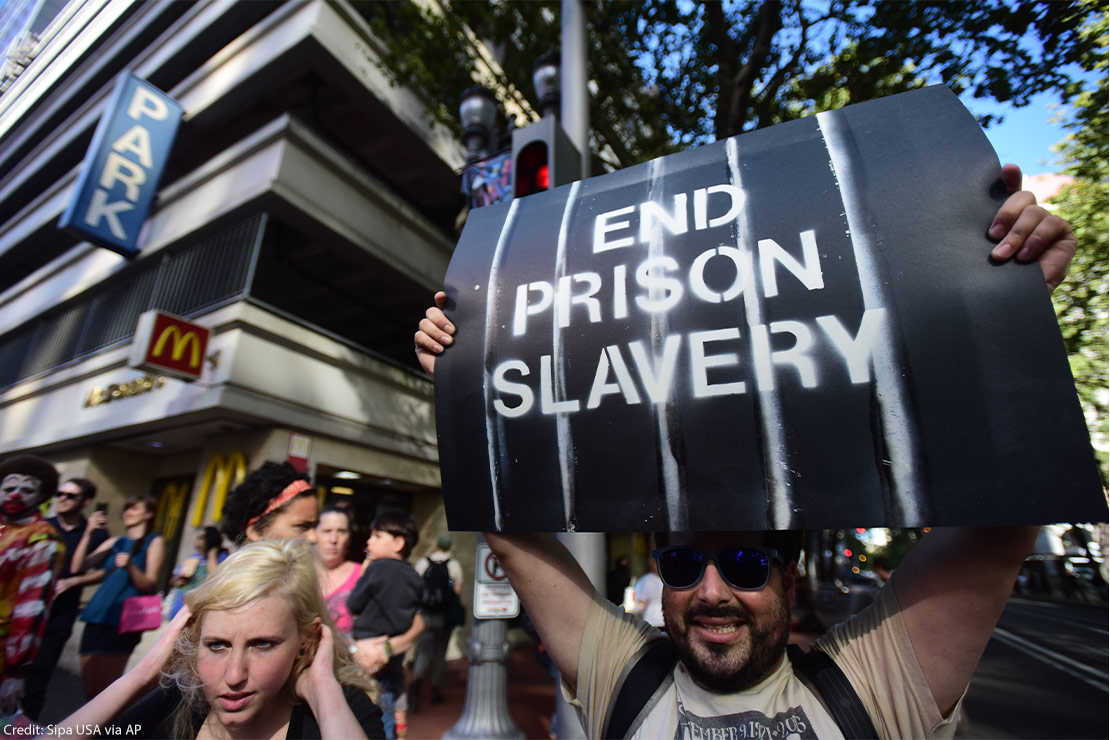[ad_1]
Voters across the political spectrum want to support their elected officials in boldly supporting criminal law reforms that reduce sentencing and mass incarceration – according to polls conducted just before the part of the middle age. Despite a controversial, pro-crime agenda from some candidates who tried to manipulate crime as a campaign issue, the majority of voters chose justice. While not all reform initiatives have succeeded at the polls, voters have made significant progress on many issues, including prison reform, drug policy, and legal reform.
Here are three key takeaways from the midterm elections and what they mean for future criminal justice reform efforts.
Voters removed slavery from state law and redefined prison labor.

More than 150 years after the abolition of slavery, four states — Alabama, Oregon, Tennesseea Vermont — voted to remove language in their constitutions that allowed slavery as a punishment for crime, an exception written into the 13th Amendment.
The success of these efforts represents growing support for prison reform in a country where 800,000 inmates work and are often forced to work for cheap and free. These amendments are needed to remove outdated language from federal statutes and reform the criminal justice system by freeing all prisons. For too long, prisoners have been used for their work, earning pennies on the dollar. These victories paved the way for an end to today’s forced labor in prisons and jails across the country.
Voters were devastated by the war on drugs.
After this year’s midterms, 21 states have legalized marijuana; the tide of legalization and decriminalization continues to grow across the country. Voter in Maryland Legalized marijuana, including the automatic expungement process for getting rid of previous drug possession charges, can improve people’s lives so they don’t end up with a criminal record. And even drug policy loss in Arkansas, North Dakotaa South Dakotathere are still many big wins in places where voters are increasingly reluctant to hold. Missouri legalized marijuana, and five Texas touch and five Ohio Cities banned possession of marijuana locally. Wisconsin Voters also approved ballot questions regarding marijuana in three counties and five cities across the state, paving the way for future legalization.
These victories build on promising results from previous election cycles, where countries are more politically conservative – including Maine, Virginia, New Mexico, Alaska, Montana a Arizona — passed the law on marijuana. This wave of victories not only demonstrates stronger bipartisan support for addressing the serious social issues in marijuana possession, but also makes the case stronger. for legalizing and decriminalizing marijuana at the federal level. The legalization of Marijuana and the elimination of previous marijuana convictions are necessary to address the racial disparities and racial harms of the war on drugs.
Inside Colorado, voters approved a measure banning the use of certain psychiatric drugs, which are increasingly used to treat a wide range of health issues, including anxiety and mood disorders. This legalization process aligns the government with the growing national perception of drug use as a public health issue, not a criminal problem. There is still more to be done, but the progress we have made this election cycle points in the right direction.
Voters elected a wave of reform-minded prosecutors despite the negative news.
Despite the many negative messages about crime and the persistence of certain diseases, such as in Maricopa County, Arizona, the prosecutorial movement won several additional seats in this cycle. From Polk County, Iowain Bexar County and Dallas County, Texasto King County, Washington and furthermore, the voters’ voice was clear: They want sensible reforms and recommendations to improve public safety.
Most importantly, in Hennepin County, Minnesota, public defender Mary Moriarty’s hard-line approach is tempered by the fear of her law-and-order adversary, retired county judge and former prosecutor Martha Holton Dimick. Moriarty told reporters that his run was inspired by calls for racial justice and criminal justice reform following the George Floyd protests in 2020: “I saw the opportunity for change. And I thought, people who really care about public safety, and a fair and just system should step up in this time of chaos and show the options that are not like the old stuff we’ve had for decades, it didn’t last. We’re safer.”
In August, voters in Shelby County, Tennessee District Attorney Amy Weirich, who had earned a national reputation for ineffectiveness and strict discipline, was also ousted in favor of Steve Mulroy, who ran on a reform agenda in the office. Each of these progressive candidates won their races – often by wide margins – despite growing opposition to them in places like Florida, Pennsylvaniaa Wisconsin.
As history has shown time and time again, candidates who perpetuate hate speech against crime while ignoring the facts do not significantly increase public safety. . While not all criminal law reforms have been successful this year, voters have proven they want new solutions to address public safety, not divisive rhetoric that incites fear. Our newly elected leaders on both sides of the aisle have an obligation to continue to push for bold legislation that changes our approach to public safety, protects civil liberties, and strengthens in our communities.
[ad_2]
Source link
